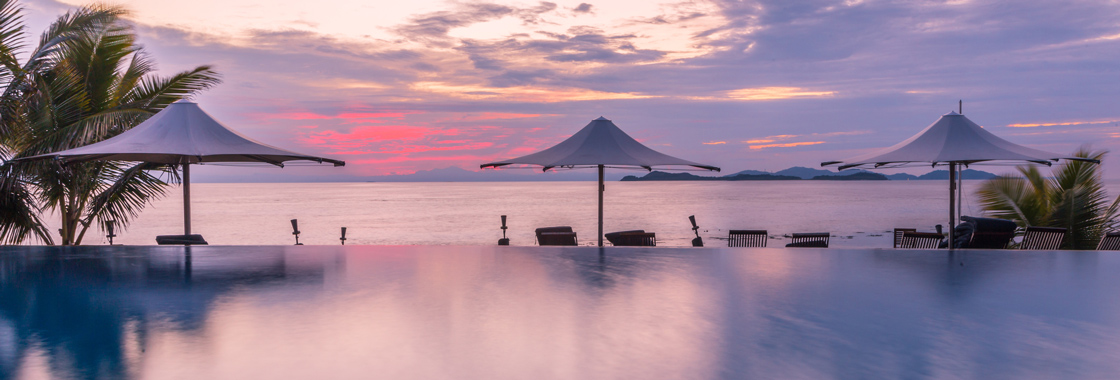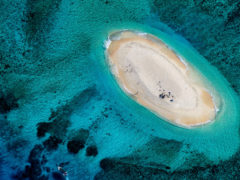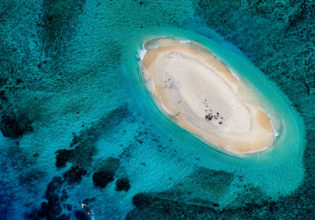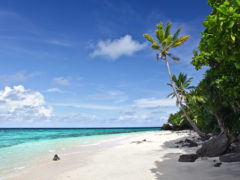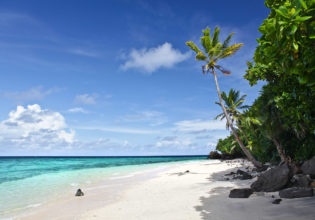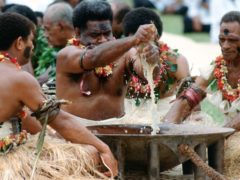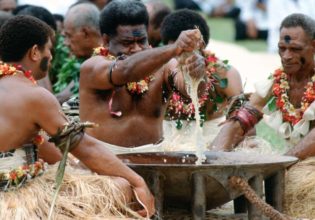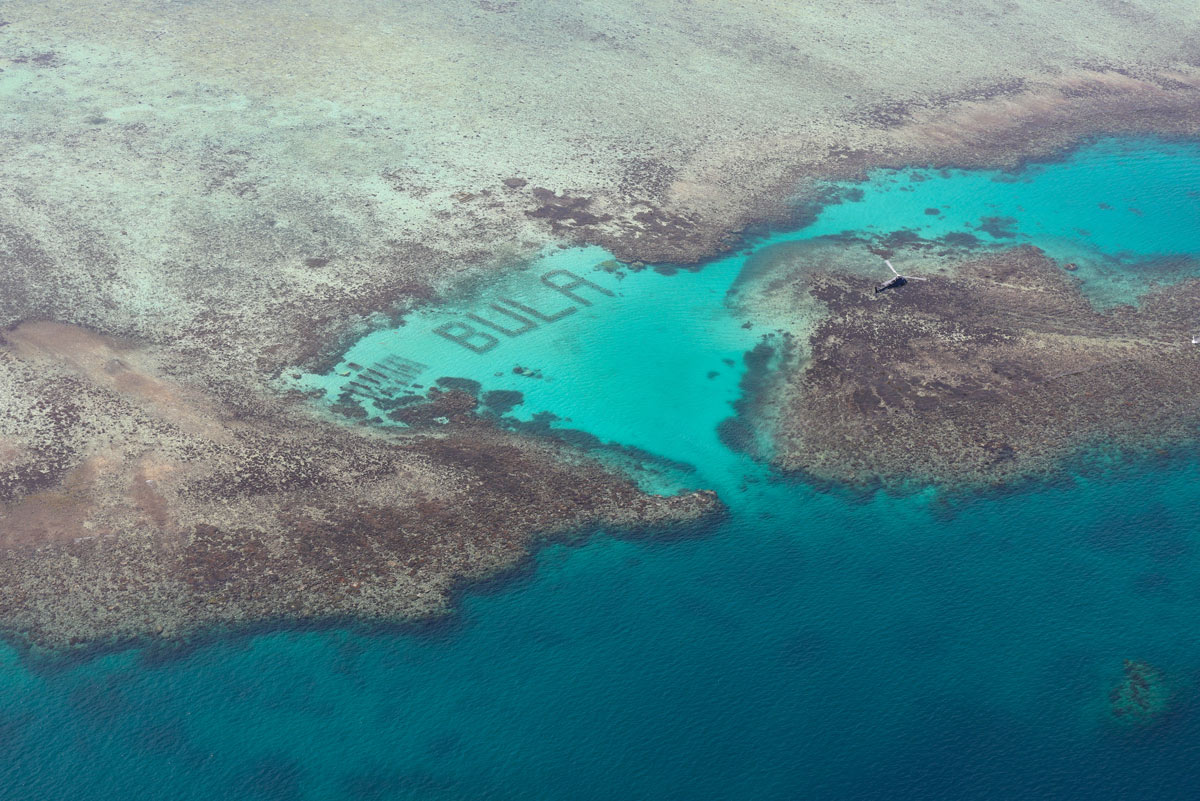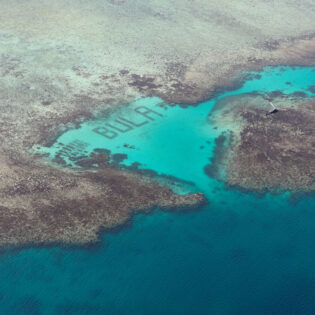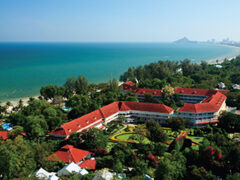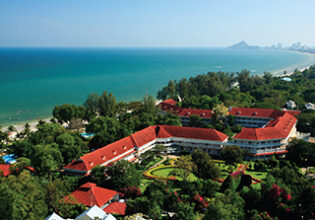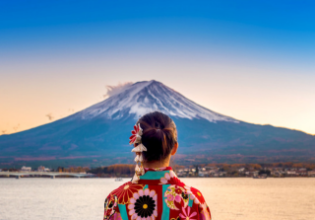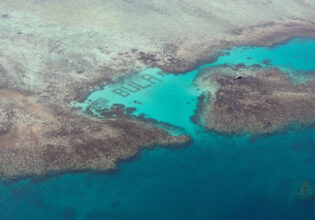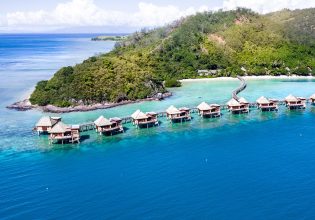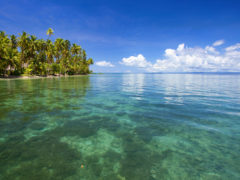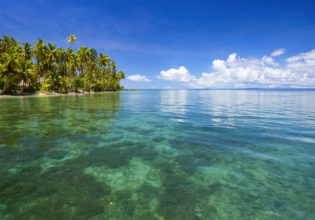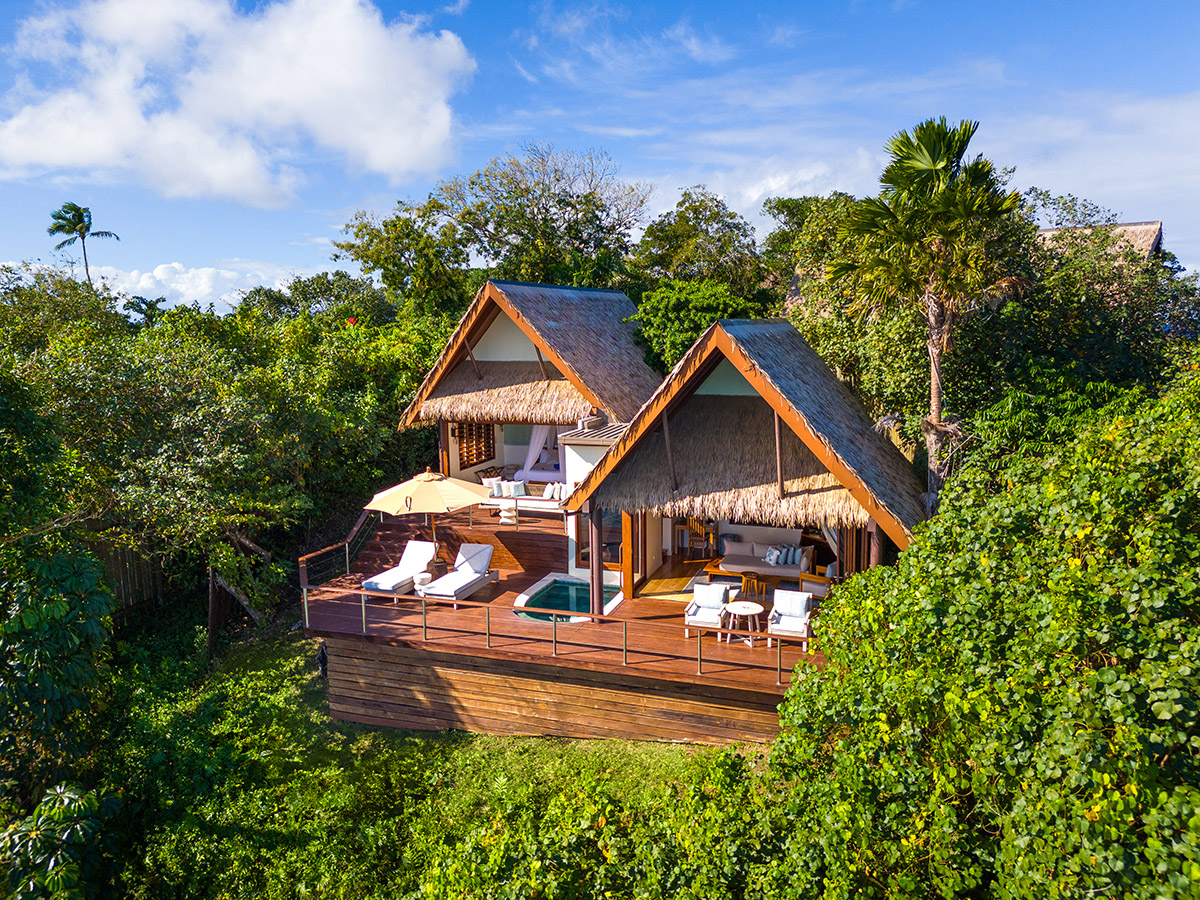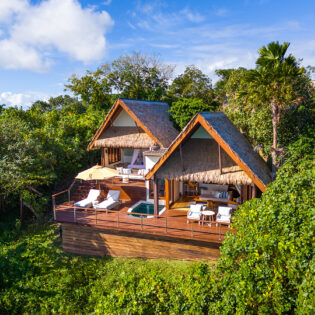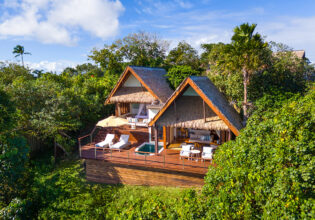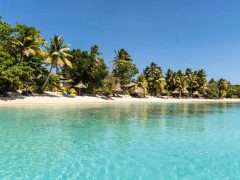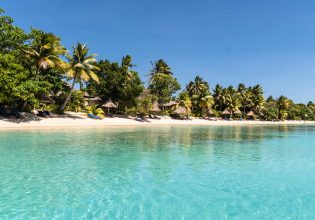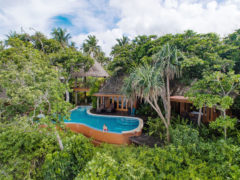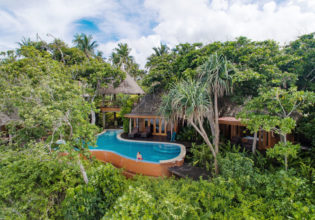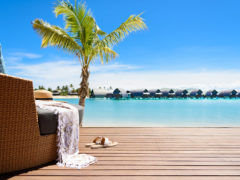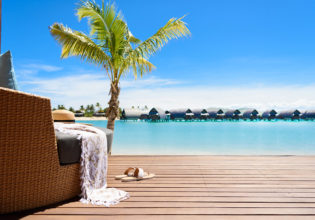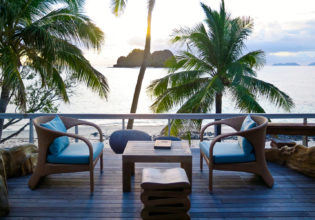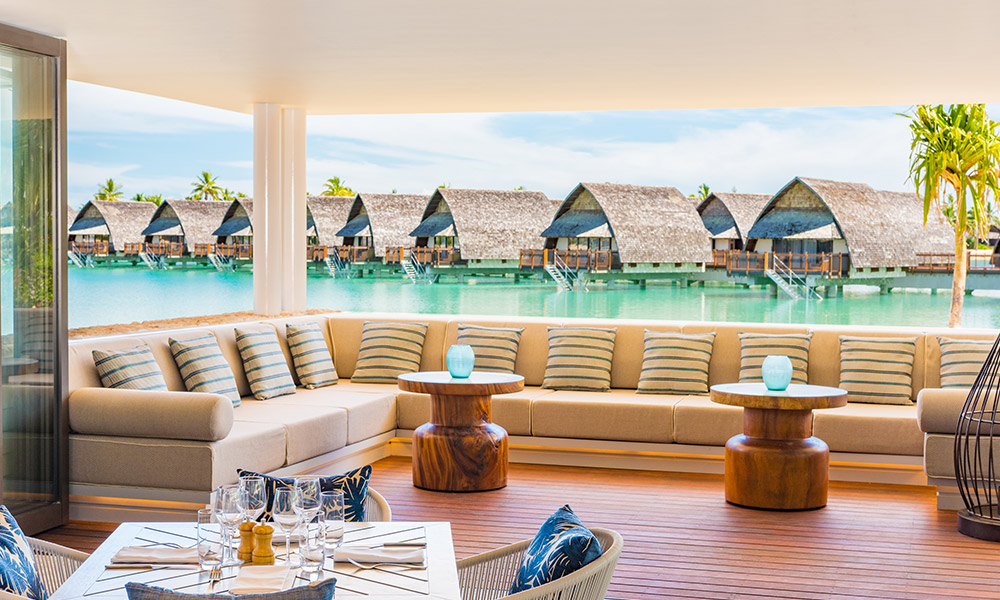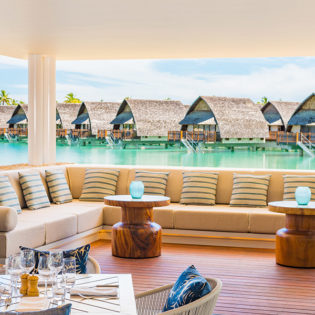Fiji’s 333 islands are scattered like jewels in the heart of the South Pacific and offer travellers the quintessential tropical paradise holiday. But eternal sunshine and perfect palm-lined beaches fringed by turquoise waters and thriving coral reefs are just the beginning.
Throw into the mix a unique traditional village culture, some of the friendliest people you’ll ever meet, off-the-beaten track adventures through verdant interiors and an emerging trend of farm-to-table cuisine and you’ll start to see what a wonderfully versatile destination Fiji is.
From the perennially popular Coral Coast to the picture-perfect archipelagos of the Mamanucas and Yasawas to the path-less-travelled paradise of Vanua Levu and the remote southern frontier of Kadavu, there’s a holiday here for you – whether you’re seeking family fun, romance, adventure or simply sunshine and relaxation.
Best Time to Visit Fiji
Quick connections from Australia’s east coast, English spoken as one of three official languages and a great tourism infrastructure make Fiji an easy country to both get to and get around.
There are direct flights to Fiji’s Nadi International Airport from Brisbane (3.5 hours), Sydney (four hours) and Melbourne (just under five hours). Nadi is located on Fiji’s main island Viti Levu (Denarau Island, Coral Coast and capital city Suva) and a good infrastructure of domestic flights and ferries ensures easy access to the other islands.
With a tropical climate boasting year-round sunshine, Fiji has two distinct seasons. Dry season runs between May and October and is arguably the best and most comfortable time to visit, with clear blue skies, low rainfall and humidity and ideal conditions for snorkelling and diving. Daily temperatures hover around 25°C and never dip below 19°C at night.
Wet season between November and April is warmer (up to 33°C), with increased humidity, tropical downpours (usually in the mid-afternoon), and the risk of cyclones. But there’s still a lot of sunshine to go round (and still lots to do when it rains) and plenty of benefits to travelling at this time: Fiji is uncrowded and accommodation is generally cheaper (with the exception of the popular Christmas and New Year period), the islands are lush with vegetation and tropical flowers, and waterfalls are at their most mighty.
Which Fiji islands are best for me?
With seven main islands each with their own satellite of smaller islands, Fiji’s shores range from the holiday-ready to the blissfully remote.
Best Fiji islands for families
Fiji’s main island Viti Levu has all you could need for a great family holiday along with the convenience of not having to stray too far from the international airport. The resort haven of Denarau Island is less than half an hour from Nadi and provides a raft of family-friendly all-inclusive accommodation options – few do kids’ clubs like Fijian resorts. There’s tonnes of fun to keep kids occupied outside of the hotel too, from the Big Bula Waterpark to island day cruises like South Sea Cruises’ half-day Finding Nemo ‘Family’ Cruise and full-day Castaway Island Resort Cruise. Also in the region are forest canopy adventure parks Zip Fiji and Sleeping Giant Zipline Fiji.
An hour’s drive from Nadi on the south of the island is the beautiful Coral Coast with resorts like Shangri-La’s Fijian Resort and Spa and Outrigger Fiji Beach Resort boasting the best of child- and teen-friendly activities, kids-eat-free deals and nanny services. The area provides plenty of whole-family attractions too: from traversing the dunes at Sigatoka Sand Dunes National Park to encountering animals and a whole lot more at the Kula Wild Adventure Park, and from taking a ride along an old sugarcane railway track with Ecotrax Fiji to heading off on a jet boat adventure with Sigatoka River Safari for thrills, spills and an insight into traditional Fiji village culture.
Best Fiji islands for beaches
For the glossy-brochure Fiji of popular imagination, head straight for the two archipelagos that fan out from the west coast of Viti Levu: the Mamanucas and Yasawa islands. Here it’s all about placid lagoons, dreamy resorts and of course, palm-lined white-sand beaches. The Mamanucas’ sandy stretches are so idyllic, in fact, that they were used as the set for the Tom Hanks movie Cast Away. You can visit the exact spot, Monuriki Island, as a day trip from your resort or on South Sea Cruises’ Seaspray Day Adventure from Port Denarau on Denarau Island.
You can also spend the day at Malamala, the world’s first island beach club just a 25-minute boat ride from Port Denarau, where sipping cocktails in beachside cabanas and taking to the turquoise waters for swimming and snorkelling is more or less mandatory.
North of the Mamanucas, the Yasawas offer all the same eye-popping blues and pure shores, with the bonus of being a little more remote. Take a cruise to cram in as many beaches as possible or check into a heavenly resort like Yasawa Island Resort & Spa, where you’ll get one of its 10 private white-sand beaches all to yourself.
Best Fiji islands for romance
From the Mamanucas to the outer islands, drop a pin in the map of Fiji and you’ll find somewhere that spells romance. And you’ll be spoiled for choice on Vanua Levu. Fiji’s second largest island after Viti Levu is also much less visited, ensuring the kind of blissful isolation that is all important for a romantic getaway. Here and on its satellite of smaller islands you will find adults-only resorts like Taveuni Island Resort And Spa, the luxury oceanview villas at KOKO Savusavu and the ultra-exclusive Namale Resort & Spa.
You’ll find plenty of resorts offering romance and honeymoon packages too, including three-star Koro Sun Resort and the world-class eco retreat Jean-Michel Cousteau Resort. Prove that your wedding was within the last year and you can take advantage of 10-villa Savasi Island Resort’s complimentary honeymoon package of a bottle of sparkling on arrival, couple’s massage and private candlelit dining experiences overlooking glossy lagoons.
If you can tear yourself away, head to the scenic bay town of Savusavu on Vanua Levu’s south coast to get the endorphins pumping with a cocoa farm and chocolate factory tour of KokoMana. Or take a cruise with J. Hunter Pearls to see how its rare and fantastically coloured Fijian pearls are harvested – and have the chance to buy your other half the ultimate romantic souvenir in the shape of Fijian pearl jewellery.
Latest travel deals
Things to do in Fiji
From natural attractions to cultural visits and adrenalin-fuelled activities, there’s no shortage of things to do in Fiji – if you can peel yourself off the beach.
Surfing
Fiji is one of the world’s top surfing destinations. It benefits from warm tropical waters and uncrowded surf breaks including the world-famous Restaurants and Cloudbreak in the Mamanucas. Like most of Fiji’s surf breaks, these legendary waves are located on reefs and expert surfers should head straight to Tavarua Island Resort to check them out; the resort also has a ‘Kiddie Land’ with playful waves and lessons for the little ones.
For beginners or those building up to the big ones, head to Coral Coast, which produces a mix of beach and reef breaks, including Sigatoka, Natadola and Naviti. Learn to surf with one of Fiji’s surf tour operators, such as Matanivusi Eco Beach Resort and the Fiji Beachhouse.
Activities and attractions
Fiji has a bounty of world-class natural attractions to visit including Sigatoka Sand Dunes National Park, located at the mouth of the Sigatoka River on Viti Levu and The Garden of the Sleeping Giant in the foothills of the Nausori Highlands near Nadi, which is home to lily ponds, native plants and the rumoured largest orchid collection in the world.
Further north, Taveuni, dubbed the Garden Island of Fiji, is home to one of the world’s most undisturbed island habitats, mostly in the vast Bouma National Heritage Park. It’s here that you will find some of Fiji’s best waterfalls.
There are plenty of cultural attractions too, from the traditional village of Navala in the grassy mountains of Viti Levu’s Suncoast, where you can see over 200 traditionally thatched bures, to the one-time colonial capital Levuka, Fiji’s only UNESCO World Heritage site, on the eastern island of Ovalau. And be sure to visit Suva for a walking tour and visit to the Fiji Museum in order to learn about the country’s history and heritage.
If it’s adventure you’re after, you’ll find it in Fiji. Pacific Harbour, 50 kilometres west of Suva, is considered the adventure hub. Here you can zipline through tropical forest canopies, go shark diving or river rafting. Some of the world’s best soft coral diving can be found in Fiji and one of the top spots is here at the Beqa Lagoon; a stay at Beqa Lagoon Resort provides the perfect launchpad.
With its clement weather and gentle sea breezes, Fiji offers prime conditions for golfing and has a range of courses to suit all skill levels scattered throughout the islands. Main island Viti Levu has three 18-hole, 72-par championship courses including the ocean-facing Natadola Bay Championship Golf Course, arguably Fiji’s best, on the south-west coast (stay at Intercontinental Fiji Golf Resort & Spa) and The Pearl Golf & Country Club, set among lush rainforest, in Pacific Harbour (stay at The Pearl Resort). Super-exclusive private island resort Laucala, which lies to the east of Taveuni, has one of the most unique golf courses in the world – set against a volcanic mountain backdrop and clinging to a sheer cliff that drops away into the Pacific Ocean.
You’ll find smaller and fun nine-hole courses elsewhere, including at Naviti Resort and Shangri-La’s Fijian Resort & Spa (Coral Coast) and Plantation Island Resort (Mamanucas).
Where to stay in Fiji
When it comes to accommodation, Fiji has it all: from beachfront backpackers to exclusive private island resorts and everything in between.
Sustainable resorts
Located on Malolo Island in the Mamanucas and with 24 luxury villas, Six Senses Fiji has taken sustainability to another level in Fiji. Its eco-friendly programs include conserving energy and rainwater, making its own drinking water and growing organic produce. It also has one of the largest off-grid solar installations in the southern hemisphere, plus beehives and free-range chickens producing eggs from their Cluckingham Palace home.
A pioneer in eco tourism not only in Fiji but also the world, Jean-Michel Cousteau Resort on Vanua Levu approaches everything it does with sustainability in mind, taking its cues from the Fijian people’s age-old agricultural and fishing practices. With an in-house marine biologist, a reef protection program and a giant clam-breeding project, marine conservation is a focus here and its dive centre is considered one of the best in the world. It also has an award-winning kids’ club.
Another eco-tourism trailblazer is luxury private island resort Turtle Island in the Yasawas. Accommodating just 14 couples at a time over 200 hectares of forest and 12 private beaches, it prides itself on being a cultural experience where everything is rooted in the Fijian way of life. It is solar powered, its produce is grown locally on the island or freshly caught from the sea and its villas are hand-crafted by Fijian artisans. It also runs a conservation program for endangered sea turtles.
Luxury stays and bungalows
Exclusive and adults-only, Likuliku Lagoon Resort on the Mamanucas’ Malolo Island boasts Fiji’s first overwater bures (bungalows). Built in 2007 and still among the most heavenly, they’re set in a natural ocean lagoon that you can dip straight into thanks to your bure’s handy ladder.
Set in the remote southern Kadavu Group of islands, the six-star Kokomo Private Island Resort is among the ultimate accommodation Fiji has to offer: 21 secluded villas each with their own private pool, tropical walled garden, ocean view and beach access. This is another resort that grew with sustainability at its core.
Ultra-exclusive beachfront resort Wakaya Club & Spa is located on Wakaya in Fiji’s eastern Lomaiviti archipelago and boasts 10 intimate bures (bungalows) and two private villas in an environment rich with unspoiled tropical forest and pure white beaches. The resort is committed to preserving the island’s natural resources and traditional Fijian culture.
Family Accommodation
Five-star Outrigger Fiji Beach Resort on the Coral Coast is designed to feel like a traditional Fijian village and is a good choice for families of all sizes with options ranging from hotel rooms to family bures. It has two kids’ clubs for little ones and teens alike as well as Meimei nanny services for babies aged six months through to kids of 12. The Outrigger family also has another family-friendly Fiji outpost: Castaway Island in the Mamanucas.
Also on the Coral Coast, Shangri-La’s Fijian Resort & Spa gives you the taste of being on a far-flung private island resort while not being far from Nadi. The resort has everything here for kids: from an inflatable water park to Little Chief’s Club, with an endless roster of activities to choose from including crab races and fish house building.
An exclusive coastal estate in Viti Levu’s Pacific Harbour, Nanuku Auberge Resort is notable for its culturally immersive kids’ club, Lailai Adventure Club. Here, children have the chance to get completely immersed in nature, mindfulness, education and traditional experiences. There are also complimentary nanny services for small children and buddies for older kids.
Budget and affordable luxury
Uprising Beach Resort in Pacific Harbour has an array of Fijian-themed accommodation options ranging from deluxe traditional thatched beachfront villas and bures to a shared treehouse dorm, plus an attractive beachfront area and grounds.
Set high on a hill above Savusavu Harbour on Vanua Levu, Naveria Heights Lodge is a lovely boutique hotel with beautiful views, private decks and a tree-top plunge pool.
With 26 beachfront bures and eight sunset pool villas, adults-only Tokoriki Island Resort Fiji in the Mamanucas is all about offering couples affordable luxury in a contemporary, boutique setting.
What to eat in Fiji
Hewn from rich volcanic soil and scooped from abundant seas, Fiji has exceptional local produce and in recent years has seen a growth in hotels, resorts and restaurants embracing the farm-to-table philosophy. So expect an elevated dining experience and don’t miss the chance to try some traditional flavours and foodie experiences along the way.
Local food and drink
A core part of local cuisine, lovo is a traditional feast cooked in an underground oven. The process – which results in a smoky, flavourful feast to be shared among family and friends – involves digging a pit in the ground and placing hot coals inside before adding meats like chicken, pork or fish and vegetables wrapped in banana leaves. The pit is then covered and slow-cooked for hours. Although traditionally reserved for special occasions in Fijian villages, today lovo is a popular experience at many resorts.
Usually served as a starter, kokoda is the Fijian version of a raw fish dish – a little bit like the Peruvian dish ceviche. It sees fish like mahi-mahi or snapper marinated in citrus juice and coconut milk and given an extra zing with onion, chilli and capsicum. It is then presented, with a flourish, in a coconut shell. You’ll also find an abundance of curries available across the islands thanks to Fiji’s high Indian population. The local version here is typically made with coconut milk, tomatoes and sometimes plantain.
Known as yaqona in Fiji, kava is a mildly narcotic drink made from mixing the powdered root of the pepper plant (piper methysticum) with water. It is more widely drunk in Fiji than beer and has been traditionally used for ceremonial purposes for hundreds of years to promote a sense of relaxation. Many tours include the kava ceremony as part of their itinerary.
Best restaurants
The acclaimed Nadina Authentic Fijian Restaurant in Port Denarau specialises in traditional fare and is the place to go to try lovo, kokoda and other local dishes like palusami and rourou.
Boasting the best coffee and organic fresh food in Fiji, Bulaccino is a great local business with branches in Nadi and Suva that serve meals made with produce sourced straight from its own farm.
Sitting on a tiny manmade island just off from Warwick Resort on the Coral Coast, the adults-only restaurant Wicked Walu serves excellent seafood dinners and is one of Fiji’s most raved about.
Gaiatree Sanctuary on Taveuni Island is an organic spice plantation and edible landscape based around the premise of permaculture. A tour here includes a farm-to-table lunch made with ingredients plucked straight from your tropical surrounds.
Fiji tours & packages
Captain Cook Cruises Fiji has been plying the waters here for over 20 years and offers a whole range of small-ship cruises from day trips all the way through to an 11-night cruise to Fiji’s most remote and rugged regions of the Lau Islands and Kadavu.
For an unforgettable private sailing holiday, Big Blue Fiji lets you charter your own course around the nation’s archipelago onboard its luxury catamaran, with the help of its passionate and expert crew. Or sail in a traditional Fijian canoe, or drua, with Drua Experience.
Explore the Mamanuca and Yasawa islands with the aid of Awesome Adventures Fiji, which offers a wide range of set itinerary packages (including diving holidays and flop and drop island stays), flexible travel passes and resort transfers.
Other operators with a difference include Talanoa Treks, Fiji’s only dedicated hiking company, which works in lockstep with the local communities you’ll visit while exploring Viti Levu’s tropical interior. And Tamarillo Active Travel, which will lead you on a multi-day sea kayak and snorkel expedition of the wild Kadavu coast near the Great Astrolabe Reef (the second largest barrier in the reef after the Great Barrier Reef). Or book a cultural tour with the 100 per cent Fijian-owned Mick’s Tours Fiji.
